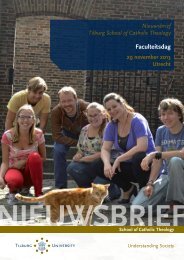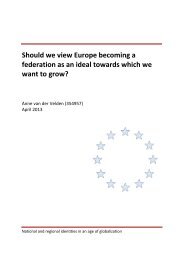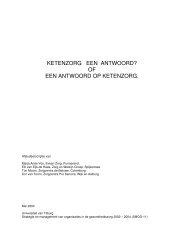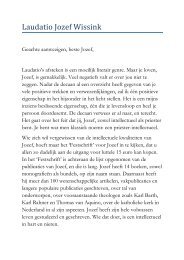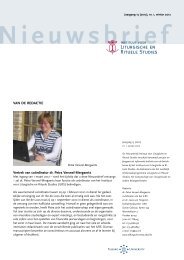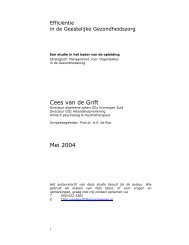Here - Tilburg University
Here - Tilburg University
Here - Tilburg University
Create successful ePaper yourself
Turn your PDF publications into a flip-book with our unique Google optimized e-Paper software.
Author and presenter<br />
Fairbrother, Malcolm; <strong>University</strong> of Bristol<br />
Title<br />
On the Multiple Ways of Using Multilevel Models to Study Social Change<br />
Abstract<br />
Analyses of repeated cross-sectional survey data have relied increasingly<br />
on multilevel/random effects models, in two ways. First, multilevel models have<br />
been used to distinguish age, period, and cohort effects, where the goal is to<br />
understand the mechanism by which some social change is occurring. Second,<br />
models of survey respondents nested within social units (typically countries or<br />
states) have been used to examine the effects of society-level conditions on<br />
individual-level outcomes. Both approaches, however, provide limited insights<br />
into the drivers of change over time. The former approach does not exploit<br />
differences among societies experiencing more or less change, and the latter<br />
does not distinguish longitudinal from cross-sectional variation. This paper<br />
illustrates how to overcome these limitations, by group mean-centring time-<br />
varying covariates—allowing for longitudinal effects to be distinguished from<br />
cross-sectional effects—and by fitting growth curves at the group level. Growth<br />
curves, where units of analysis are presumed to have unique random slopes for<br />
time, allow for the rate of some social change to be a function of a time-<br />
invariant covariate. This is the relationship many social theories implicitly<br />
expect, no matter whether change is mostly due to period or cohort effects. The<br />
paper concludes with an application to the study of why religiosity has declined<br />
(or secularism expanded) in some countries and not others.




